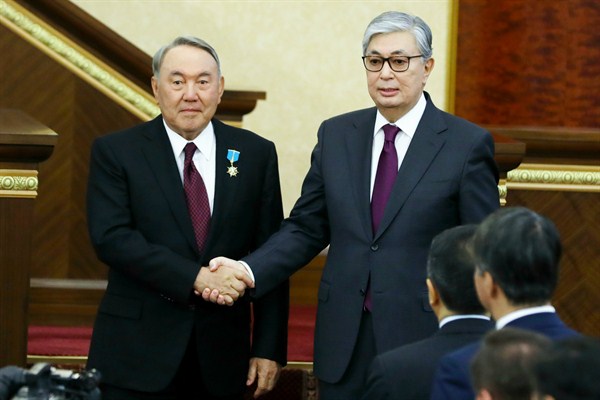Kazakhstan’s president, Nursultan Nazarbayev, resigned from office March 20, stunning the nation and the region. For many Kazakhstanis, Nazarbayev is the only leader they remember. At age 78, he had ruled for three decades and was the last remaining Soviet-era leader still at the helm of a former Soviet country.
In his inaugural address, Kazakhstan’s new acting president, Kassym-Jomart Tokayev, a former foreign minister and speaker of the Kazakh Senate, praised Nazarbayev’s leadership and called for the capital city to be renamed “Nursultan” in his honor. Dariga Nazarbayeva, Nazarbayev’s daughter, took up Tokayev’s former position in the Senate, officially putting her in the line of succession. Her elevation certainly enhances the chances that she could become her father’s long-term successor, although many Nazarbayev loyalists remain in the running. Given the opacity of Kazakhstan’s politics, it is not clear how this transition will play out.
Nevertheless, Nazarbayev’s resignation from the presidency does not diminish his influence over the country. Two years ago, he pushed through constitutional changes to weaken the power of the president, while simultaneously enhancing the clout of the Security Council, which Nazarbayev will continue to chair. As Security Council head, he will continue to enjoy enormous sway over foreign and security policy. His honorific position as elbasy—or leader of the nation—also guarantees him a role in deciding domestic matters. And as head of the ruling party in this one-party state, Nazarbayev will have the power to decide who will run and win the presidency in the next election, scheduled for 2020.

